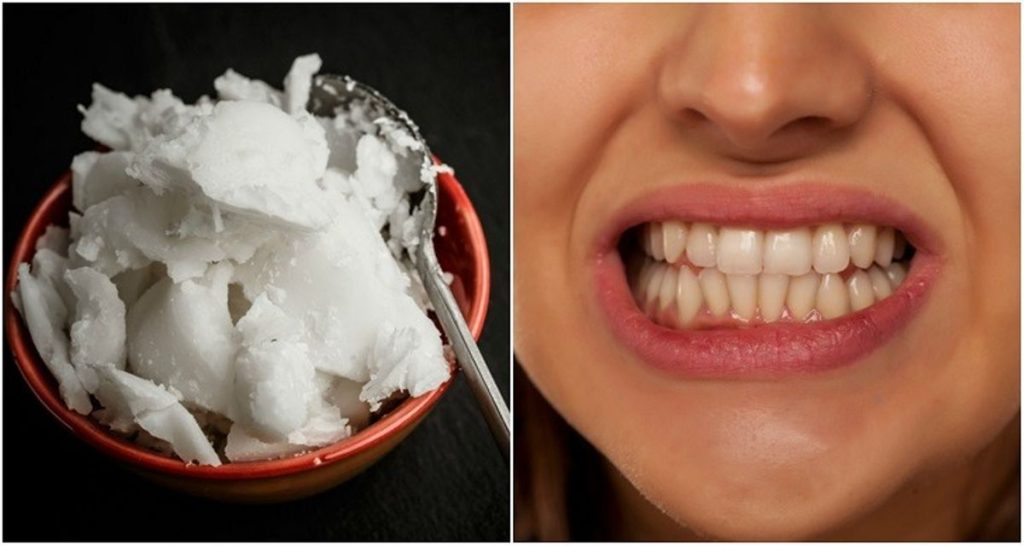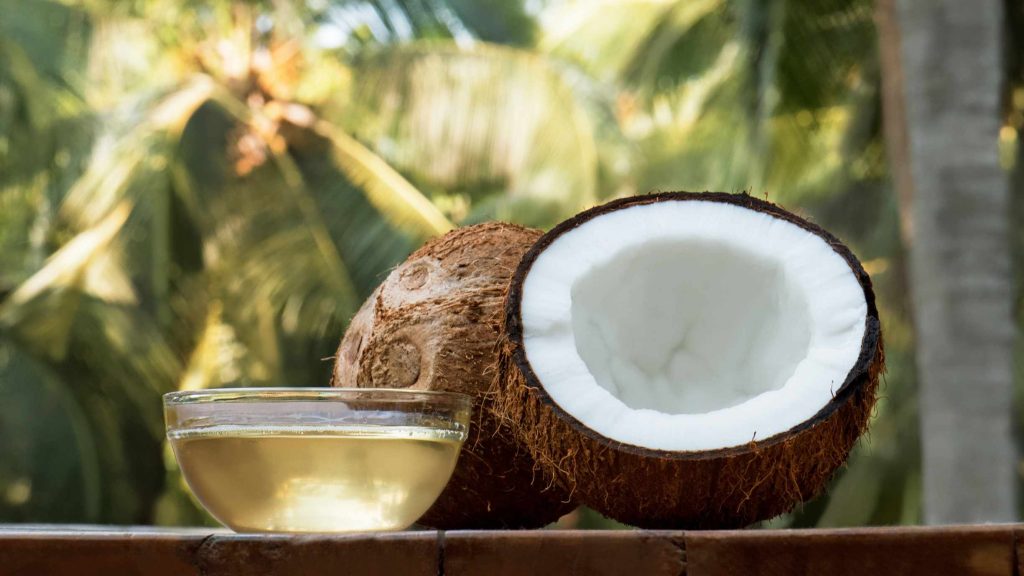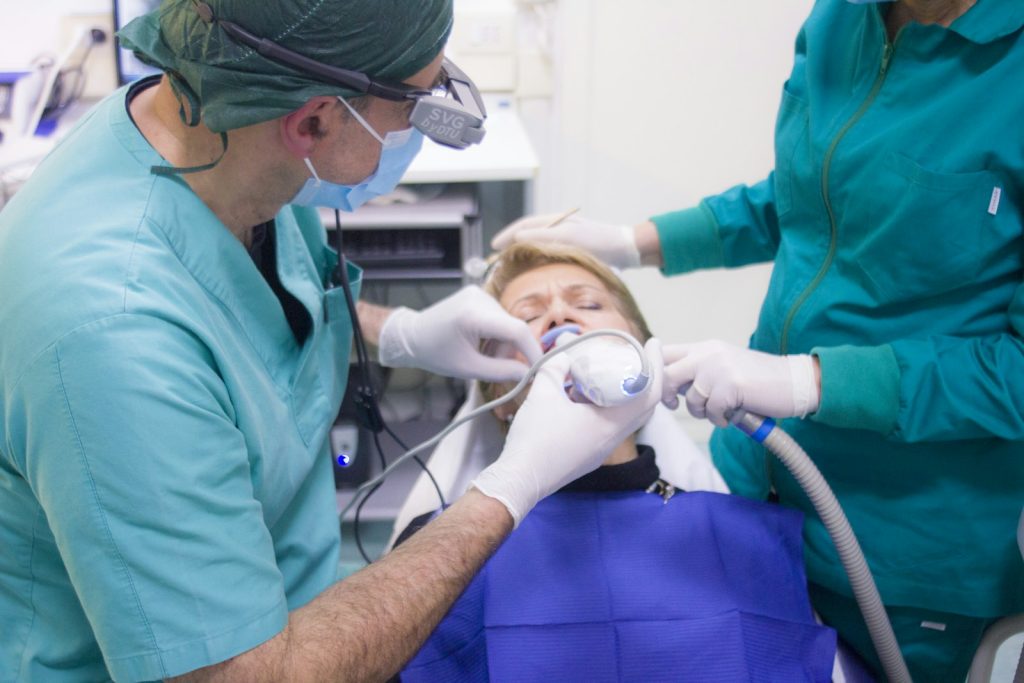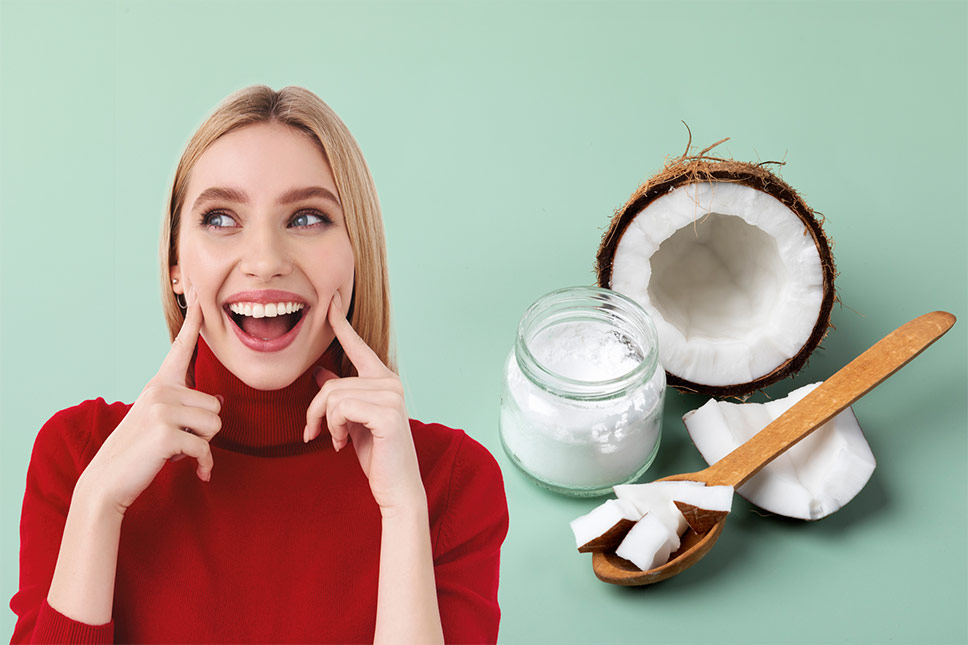You may be intrigued by the practice of coconut oil pulling and its impact on oral health. This traditional remedy has garnered attention for its purported ability to influence the oral microbiome positively. Recent clinical studies shed light on how this ancient technique may reduce harmful bacteria while promoting beneficial microorganisms in the mouth. Through a synthesis of scientific research, you will explore the insights and implications of coconut oil pulling, providing a comprehensive understanding of its potential oral health benefits.
Table of Contents
The Mechanism of Oil Pulling and Its Impact on Oral Health

Understanding how oil pulling works helps elucidate its benefits for oral health. In this ancient practice, individuals swish a tablespoon of oil in their mouths for up to 20 minutes, allowing the oil to interact with saliva, bacteria, and food particles. The oil’s viscosity aids in trapping and removing these unwanted elements, ultimately promoting a cleaner oral environment. Regularly practicing oil pulling may lead to improved gum health, fresher breath, and a reduction in plaque accumulation, all contributing factors to overall oral wellness.
- How Coconut Oil Operates in the Mouth
Coconut oil operates effectively in the mouth due to its unique ability to bind with harmful bacteria, resulting in their removal during the swishing process. As the oil is spread and mixed throughout the oral cavity, it interacts with the sticky biofilms composed of bacteria. This interaction destabilizes these bacteria’s hold on teeth and gums, facilitating their expulsion when the oil is spat out. Consequently, oil pulling not only cleanses the mouth but also promotes a more balanced oral microbiome.
- The Role of Lauric Acid in Inhibiting Harmful Bacteria
Lauric acid, a saturated fat found in coconut oil, plays a pivotal role in combating oral pathogens. Its efficacy is primarily attributed to its antimicrobial properties, as it disrupts cellular membranes of harmful bacteria like Streptococcus mutans, which are linked to tooth decay. By inhibiting these bacteria, lauric acid aids in reducing the overall pathogenic load in the mouth while preserving beneficial microbes, creating a healthier oral ecosystem.
Research indicates that lauric acid can significantly reduce levels of oral pathogens. In a study published stated that lauric acid demonstrated considerable antibacterial activity against S. mutans, impacting its growth and metabolism. Thus, individuals incorporating coconut oil pulling into their daily routine can benefit from lauric acid’s ability to enhance oral health, aligning with efforts to prevent cavities and gum disease. This antibacterial action not only supports a balanced oral microbiome but also contributes to improved overall dental health.
Dissecting the Oral Microbiome: A Complex Ecosystem

The oral microbiome functions as an intricate web of various microbial communities residing in the mouth, comprising bacteria, fungi, viruses, and protozoa. Each of these microorganisms plays a role in maintaining oral health, and their interactions create a balanced environment. A healthy oral microbiome is characterized by a diverse population, which contributes to immune responses, nutrient breakdown, and the prevention of disease. However, disruptions to this delicate ecosystem can lead to oral health issues, underscoring the importance of understanding the interdependent nature of its inhabitants.
- The Balance Between Beneficial and Pathogenic Microbes
A finely tuned balance exists between beneficial and pathogenic microbes within the oral microbiome. Beneficial microbes, such as Streptococcus salivarius, contribute to the breakdown of food particles and the establishment of a protective barrier. Conversely, pathogenic organisms like Streptococcus mutans are linked to dental caries. When the equilibrium is disrupted due to factors such as diet, stress, or systemic illness, harmful bacteria can overgrow, leading to conditions like gingivitis or periodontitis. This balance is important for maintaining overall oral health and preventing disease.
- How Coconut Oil Affects Microbial Diversity
Research indicates that coconut oil can positively influence the diversity of the oral microbiome. Its unique composition, particularly the presence of lauric acid, exhibits antimicrobial properties that can selectively target harmful microbes while preserving beneficial ones. A study showed that regular oil pulling with coconut oil reduced the count of pathogenic bacteria such as Staphylococcus aureus by over 90%, while allowing beneficial bacteria to thrive. Coconut oil’s ability to foster a healthier microbial environment contributes to improved oral health outcomes.
Further investigation into how coconut oil affects microbial diversity reveals its capacity to decrease harmful bacterial populations without completely eliminating beneficial species. This selective antimicrobial effect encourages a more balanced and diverse microbiome. A study involving participants who performed coconut oil pulling for several weeks observed a significant increase in beneficial bacteria associated with oral health, while harmful microbes decreased. Such findings highlight coconut oil’s role as a natural intervention for maintaining a balanced oral microbiome and promoting overall oral hygiene.
Clinical Evidence: What Research Reveals

Recent clinical studies have begun to shed light on the effects of coconut oil pulling on the oral microbiome. Researchers have found promising results, indicating that this traditional practice can influence the composition and health of oral microbiota, potentially leading to reduced bacterial populations associated with cavities and gum disease. This evidence positions coconut oil as a viable alternative in maintaining oral hygiene, deserving of further exploration and validation through larger-scale studies.
- Key Studies Supporting Coconut Oil’s Efficacy
Several key studies provide robust evidence for the efficacy of coconut oil pulling. One notable study published in the Journal of Clinical and Diagnostic Research found that participants who performed oil pulling with coconut oil exhibited significant reductions in oral pathogenic bacteria within a short period. Another study highlighted the anti-inflammatory properties of coconut oil, contributing to improved periodontal health among regular users, showcasing its potential as a natural adjunct to oral hygiene routines.
- Comparative Analysis with Traditional Mouthwashes
A comparative analysis of coconut oil pulling and traditional mouthwashes reveals interesting findings in oral health outcomes. Individuals who utilized coconut oil demonstrated similar reductions in plaque and gingivitis levels as those using standard chemical mouthwashes, often with fewer side effects. Understanding the distinctions between these two approaches is vital for consumers looking to enhance their oral hygiene practices effectively.
Comparative Analysis of Oral Hygiene Methods
| Coconut Oil Pulling | Traditional Mouthwashes |
|---|---|
| Natural anti-bacterial properties without harsh chemicals | Contains alcohol and other chemicals which may irritate tissues |
| Supports overall oral microbiome health | Can disrupt natural bacterial balance |
| Typically free of side effects | Potential for dry mouth or other adverse effects |
| Affordable and widely available | Cost varies widely depending on brand and formulation |
Comparative analyses show that while traditional mouthwashes effectively reduce plaque and gingivitis, they may also carry the risk of disrupting the natural oral microbiome. In contrast, coconut oil pulling appears to maintain a healthier balance among oral bacteria, making it a favorable option for those adverse to chemical ingredients found in many commercial mouthwashes.
Practical Implementation: How to Incorporate Oil Pulling
Incorporating oil pulling into daily routines can be simple yet rewarding. Individuals can begin by selecting a convenient time, ideally in the morning before breakfast. The process requires just a few minutes, making it easy to fit into busy schedules. Over time, they may notice improvements in oral health and overall well-being.
- Step-by-Step Guide to Oil Pulling with Coconut Oil
Following a structured approach ensures effective oil pulling. The steps below outline the process:
Step-by-Step Guide
| 1. Choose 1 tablespoon of organic coconut oil. | 2. Swish the oil in the mouth for 15-20 minutes. |
| 3. Do not swallow the oil; it contains toxins and bacteria. | 4. Spit the oil into a tissue or trash (not the sink). |
| 5. Rinse the mouth with water to remove residues. | 6. Brush teeth as usual for optimal oral hygiene. |
- Common Mistakes and Best Practices for Success
Many individuals encounter pitfalls during oil pulling that can hinder results. To maximize effectiveness, they should ensure they use quality coconut oil and maintain consistency in practice.
A common mistake is rushing the swishing process, which should last around 15-20 minutes for optimal results. Some individuals mistakenly swallow the oil, which defeats the purpose of pulling out toxins. Moreover, forgetting to rinse afterward can leave residues in the mouth, potentially leading to discomfort. Establishing a routine, such as performing oil pulling at the same time each day, enhances adherence. Overall, attention to detail and consistency greatly impacts the benefits of this holistic dental practice.
Broader Implications: Coconut Oil Beyond Oral Health
The benefits of coconut oil extend well beyond oral hygiene, with emerging evidence suggesting positive ramifications for overall health. As this natural substance continues to gain traction, research highlights its potential role in skin health, inflammation reduction, and even metabolic support. Its versatility makes it a popular choice in various wellness routines, appealing to those seeking holistic approaches to well-being.
- The Butterfly Effect on General Well-Being
Coconut oil’s positive effects on oral health are intertwined with overall wellness. By fostering a healthy oral microbiome, it may also contribute to improved digestion, enhanced nutrient absorption, and reduced systemic inflammation, creating a cascading effect that benefits multiple biological systems.
- Exploring Potential Systemic Benefits
Research is now delving into how coconut oil may impact various bodily systems. Emerging studies suggest that by supporting the oral microbiome, coconut oil could indirectly influence gut health and immune function, potentially decreasing the risk of chronic inflammation and digestive disorders.
Specifically, coconut oil’s antimicrobial properties are believed to reach beyond the mouth, potentially stabilizing gut flora and aiding in the prevention of dysbiosis—a condition linked to several health issues including obesity and metabolic syndrome. Furthermore, some studies point to its role in bolstering immune responses, granting the body a stronger defense against infections and illnesses. Such systemic benefits showcase the expansive influence of coconut oil, emphasizing its importance as a staple in health practices.
Final Words
On the whole, the clinical data surrounding coconut oil pulling suggests that it may positively impact the oral microbiome by reducing harmful bacteria and promoting dental health. They indicate that while traditional oral hygiene practices remain imperative, integrating coconut oil pulling could enhance overall oral care. Find out that the natural properties of coconut oil, combined with regular practice, may support a balanced oral microbiome. Thus, they advocate for further research to fully understand the long-term benefits of this ancient practice on modern oral health.
